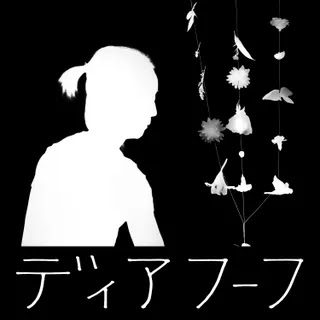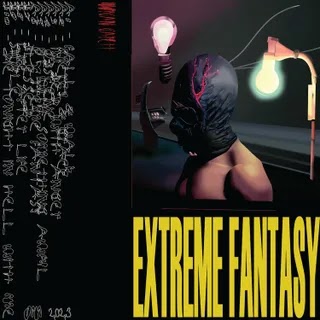The Catalan folk duo makes music full of unnameable longing and buzzing with portent. The remixes included, from John Talabot and Mans O, cannot compete with the simple sound of their voices.
Time and distance collapse in the music of the Catalan folk duo Tarta Relena. With little more than their two voices, Helena Ros and Marta Torrella connect the far corners of the Mediterranean, drawing on traditions stretching back more than a thousand years. Pack Pro Nobis, an expanded edition of two EPs released in 2019 and 2020, gathers songs from Crete, Corsica, Mallorca, Menorca, and Andalucía; the two women sing in Spanish, Catalan, Greek, Latin, English, and even the Judeo-Spanish language of Ladino, also known as Sefardí.
Tarta Relena’s spellbinding harmonies root their singing in the deep past: This is music of primal essence and unnameable longing, full of frequencies that seem to tap an ancient ache in one’s bones. But the occasional smidgen of artificial reverb, synthesizer, or digital editing snaps us back to the present. Their vision of folk is no museum piece; it is contemporary, alive, and buzzing with portent.
The opening “Ma ezevgarósan,” a Cretan song the duo learned on a visit to the island, plants us in humble, quotidian terrain. Singing in Greek, their voices circle each other in a round, mimicking the courtship of birds, their wide-open harmonies evoking the loneliness at the song’s core: “The birds mated/The wild ones are paired/But my destiny has no bird/Nor the wilderness of the mountain.” From the echoing room tone, it sounds like they recorded the song in a courtyard, perhaps a quarry; the incidental clanking of construction noise punctuates the background, along with the occasional passing car. While these sounds lend an overwhelming sense of place, subtle backmasking unsettles, as though the axis of the song’s world had come unbalanced.
Tarta Relena draw upon both liturgical and secular sources. The luminous “Tota pulchra” is a Corsican polyphonic treatment of a fourth-century Catholic prayer; “Morenika” is a melancholy Sephardic love song; the flamenco standard “Tres morillas” dates back to the 15th century songbook Cancionero de Palacio, though Tarta Relena flesh out the villancico’s rhymes and palmas with drum machine and bass synthesizer. Regardless of provenance, many of these songs are shot through with profound mourning, and not just for the subject matter, which is full of dying brides, heartbroken widows, and weeping mothers. Ros and Torrella have a stark purity of tone which, combined with their electronic treatments, sets their music apart from other interpreters of the same material.
Not everything here is old. The airy “Desigs,” which falls halfway between Arca’s operatic vocal work and the ECM New Series, is based on a Catalan translation of the contemporary Greek poet Kavafis, and “D’ençà” interpolates elements of songs by the Catalan guitarist Toti Soler and the rising duo María Arnal and Marcel Bagés, who interpret Catalan folk music through a contemporary prism. These nods to their peers situate Tarta Relena as part of a broader reappreciation of folk traditions across Spain, placing them alongside the Catalan singer-songwriter Sílvia Pérez Cruz, flamenco iconoclast El Niño de Elche, and even Rosalía, whose debut album drew heavily upon the flamenco canon. An additional disc locates Tarta Relena even more explicitly in the present, gathering remixes that range from Mans O’s glitchy, North African-inspired beats to John Talabot’s acid dub. Despite their strengths, they pale in comparison with the simple power of the duo’s own singing. The best of the bunch is the Barcelona experimental musician Ex Continent’s chilling “Morenika (Rework),” which harnesses the same spooky energy as Beatriz Ferreyra’s 1978 composition “Echoes,” pulverizing the singers’ voices until the stereo field swims with ghosts.
One of the album’s most fascinating songs seems at first to break with the Mediterranean theme. The lyrics of “Infans qui nascitur,” written in Latin, are by Tarta Relena’s own hand, but the melody, paired with a darkly shimmering drone, comes from the traditional Georgian lullaby “Chela.” The Caucasian nation of Georgia lies nowhere near the Mediterranean, of course; it is separated from the region by Turkey, Syria, and the Black Sea. But some believe that prehistoric ties link Georgia, once known as the kingdom of Iberia, and Spain, which occupies Europe’s Iberian Peninsula. Whatever the truth of these speculations, the melancholy splendor of Georgian polyphony makes for a striking counterpoint to the duo’s mix of influences. Beyond the song’s uncanny beauty, its slippery contours and intricate modal shifts feel symbolic of music’s fundamental refusal to be fixed in place. Like everything Ros and Torrella do, their adaptation of “Chela” is a celebration of musical exchange. At a time of rising nationalisms across Europe, Tarta Relena’s songs are a testament both to the porousness of borders and the ideas that unite disparate cultures, running beneath the centuries like a pedal tone.
















0 comments:
Post a Comment